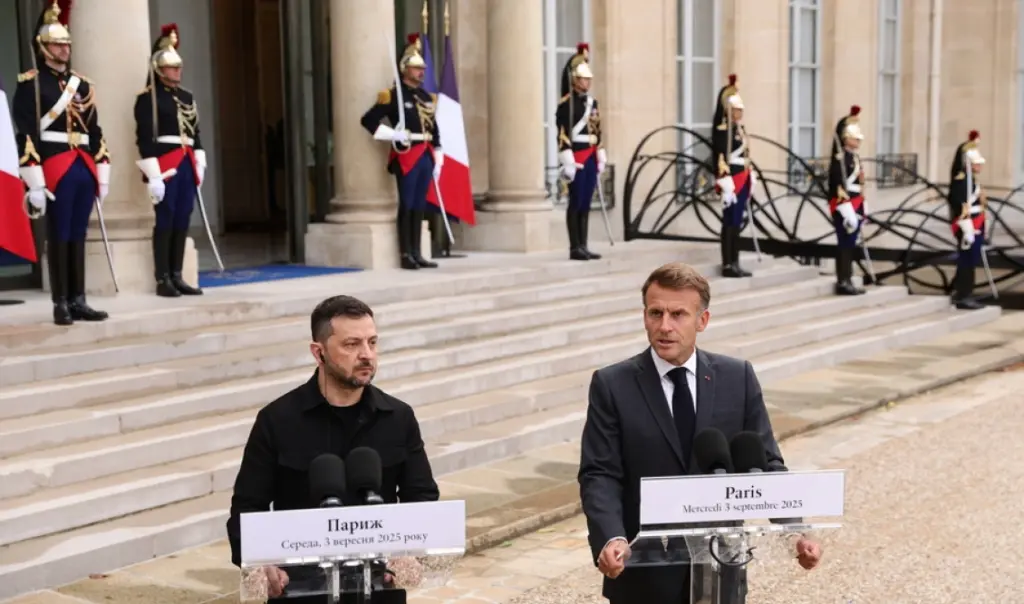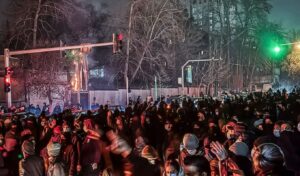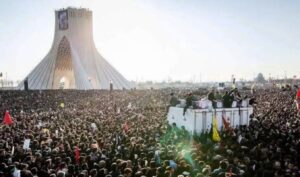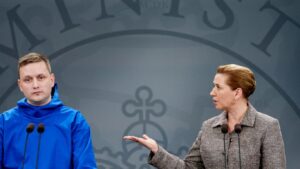The red alliance that has risen threateningly is being countered by the EU’s blue bloc at a time when diplomatic machinations are intense across two different continents. Something new has emerged in Asia with Beijing building bridges of friendship, aiming to construct strong trilateral cooperation. China’s show of force during the 80th anniversary of the end of World War II in the Chinese capital did not only underscore the significance of a historical event, but possibly signaled the opening of a new chapter, the beginning of an era during which former diplomatic adversaries are rallying together to repel the Western “enemies” who oppose their policies and interests. The major issue, given that consultations both in the foreground and background regarding Ukraine have intensified, is what significance the contacts between Vladimir Putin, Xi Jinping and Kim Jong Un had and what value the processes among Europeans hold in the “Alliance of the Willing” at the summit convening Thursday in Paris, with Volodymyr Zelensky in attendance.
Read: Paris summit for Ukraine: Macron, Zelensky and Trump discuss security guarantees
The Russian president, according to analyses by international experts, during his talks in China did not limit himself to watching a historical parade, but seized the opportunity for dialogue aimed at strengthening relations with Beijing and Pyongyang in areas concerning weapons systems and defense in general. Indeed, considering that he has used North Korean soldiers in the war against Ukraine and it remains to be seen whether he will utilize other special weapons, it becomes clear that the military show in Beijing had significant diplomatic importance. Xi was also there who, according to the “devilish” microphone that betrayed him, did not hesitate to discuss with his Russian counterpart the secrets of longevity, transplants that would ensure a life up to 150 years, but on the hottest political issues the matter of strengthening bilateral military cooperation was likely at the top of the agenda. The otherwise diplomatically isolated China and Russia found a way to break down the borders separating them and create their own shield against Europe.
Paris summit: Expectations for Ukraine after the military show in Beijing
But what is happening with the Old Continent? Where will Europeans focus in order to orchestrate the most advantageous agreement possible for Ukraine, with the eastern territories on the map, at a time when Donald Trump might find himself in the position of “Pontius Pilate”? In the French capital, the Alliance of the Willing will focus, if nothing else, its attention on security guarantees in case of a peace treaty. America has made clear it will not set foot with its military on Ukrainian soil but will provide support through the air route. Europe, however, is on a different wavelength, not ruling out sending troops, though not all countries in the bloc are aligned with this position. Nevertheless, in recent days Russian Foreign Minister Sergey Lavrov, speaking about security guarantees, again raised the issue of recognizing Ukraine’s eastern territories as Russian.
What also concerns the international diplomatic scene is when, where and whether there will be a private meeting between Putin and Zelensky, with the Kremlin proposing Moscow as the meeting place and Kyiv categorically rejecting such a scenario.
At the same time, it remains to be seen what Trump’s stance will be when phone communication takes place with Europeans and Zelensky after the Alliance of the Willing summit regarding security guarantees. Moreover, it is not yet known how the American delegation led by Steve Witkoff will participate in the Paris talks, whether they will have contact only with the Ukrainian side or with all attendees overall.
In his latest messages before yet another summit organized on Europe’s initiative, Zelensky rushed to express his gratitude to Emmanuel Macron for the support, emphasizing that thorough discussions and work will lead to the desired result for security guarantees.




